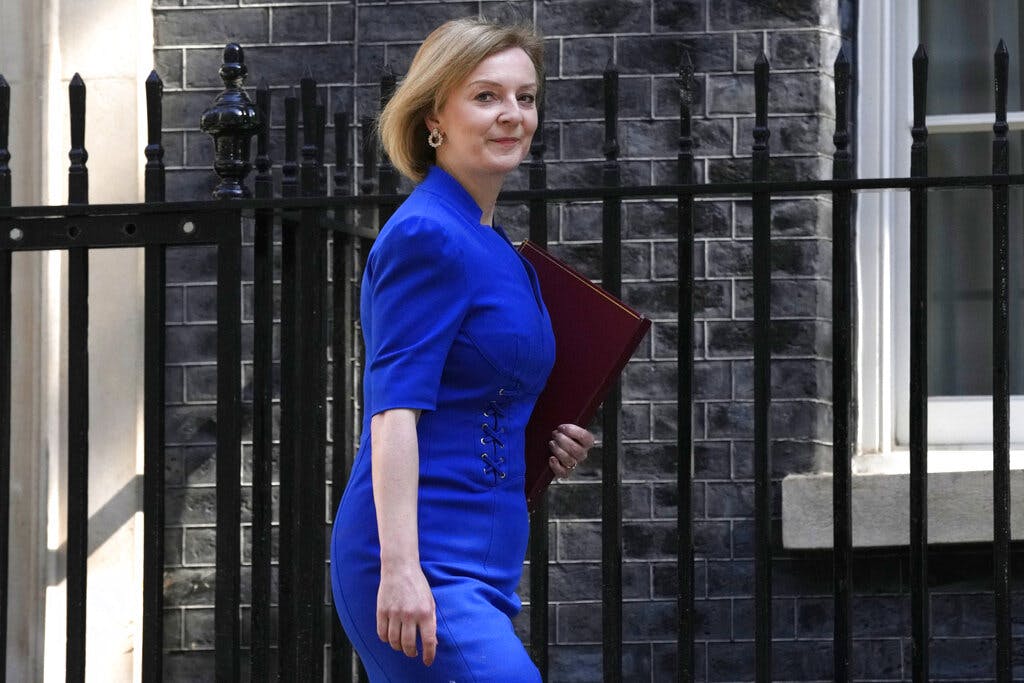A Rose by Any Other Name …
Prime Minister Truss’s proposed tax cuts would mark a triumph for supply-side economics, channeling the spirit of Margaret Thatcher — even if the Iron Lady didn’t like the phrase.

One of our favorite yarns about editorial writing involves the inestimable Peter Keresztes. He wrote editorials for the Wall Street Journal/Europe. One day at a reception in London for Prime Minister Thatcher, he went up to the great lady and introduced himself saying, “I’m Peter Keresztes of the Wall Street Journal.” Mrs. Thatcher fixed her eyes on him and thundered: “Stop using the term ‘supply-side.’ People don’t like it.”
All of which is brought to mind by today’s headline in the Sun, “Supply-Side Economics in the U.K.?” It runs over a dispatch about the “new era, focused on growth,” announced today by Prime Minister Truss’ new chancellor, Kwasi Kwarteng. “It is,” says an analyst, “half a century since we have seen tax cuts announced on this scale.” Mr. Kwarteng vows “to expand the supply side of the economy.”
Let’s call that progress. Ms. Truss’s program certainly reminds us of Thatcher’s campaign to revive the British economy. The Journal didn’t make a megillah out of Mrs. Thatcher’s fear of the phrase supply-side. After all, the Iron Lady did put through, in fact if not name, supply-side tax cuts, slashing the top marginal income tax rate, during her tenure, to 40 percent from 83 percent. The cuts put the Financial Times in a god-awful mood.
An FT editorial decried Thatcher’s “one-sided budget.” The Wall Street Journal responded at the time with a riposte called, “Cheer Up, Lads.” It noted the FT and its cronies had “laughed out loud” at the Journal’s editorials pushing for what the pink-hued paper called “The Tax Cuts Nobody Wants.” The Journal told the FT editors they “can’t lose. If the new program works, Britain will be better off. And if it doesn’t you can laugh again.”
Three decades later, the FT is at it again, warning, as it did today, that Mr. Kwarteng’s proposed tax cut “has set the British economy down a hazardous path,” as “fiscal discipline will take second place to stoking the economy.” The FT laments the prospect of higher debt, and frets that “tax cuts will only stimulate demand in an already supply-constrained economy.” They see “Trussonomics” as “a hefty political and economic gamble.”
Mr. Kwarteng’s tax cuts were also denounced by Labor, as “a budget without figures, a menu without prices.’’ A Guardian headline contends “History suggests Kwarteng’s gargantuan economic gamble won’t end well.” Yet it was Thatcher’s tax cutting — along with deregulation and taming unions — that “transformed” Britain’s economy, the Telegraph said, “into one of the strongest in the western world.”
Today, with the Telegraph warning that Britain’s tax burden has reached its highest share of GDP since 1949, the logic of tax cuts and less regulation is clearer than ever. As Thatcher said in 1988, the lesson of “the 70s and 80s is that central planning and detailed control do not work and that personal endeavor and initiative do.” Were she with us today she would be applauding Mr. Kwarteng — though she would no doubt trim one phrase from his speech.
____________________________________
This editorial was trimmed from the bulldog edition.

